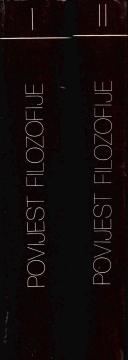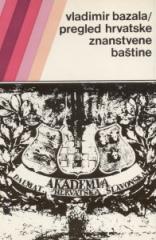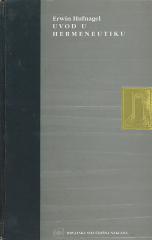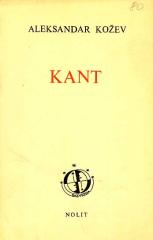
Povijest filozofije I-II
Windelbands Geschichte der Philosophie ist eines der bedeutendsten Bücher zur Geschichte der Philosophie und behandelt die Entwicklung des philosophischen Denkens vom antiken Griechenland bis zum Ende des 19. Jahrhunderts. Mit der Ergänzung „Philosophie i
Windelbands Herangehensweise an die Geschichte der Philosophie ist innovativ, da er statt einer chronologischen Darstellung von Ereignissen und Biografien von Philosophen zentrale philosophische Probleme und Konzepte untersucht und dann nachzeichnet, wie sie sich im Laufe der Geschichte entwickelt haben. Windelband sieht die Geschichte der Philosophie als eine Reihe von Problemen, Ideen und Fragen, die innerhalb der philosophischen Tradition wiederholt und diskutiert wurden und eine ununterbrochene Kette philosophischer Reflexion bilden.
Erster Teil: Antike und mittelalterliche Philosophie Im ersten Teil untersucht Windelband die Anfänge des philosophischen Denkens im antiken Griechenland und behandelt dabei vorchristliche Denker wie Thales, Heraklit und Pythagoras, die den Grundstein für die griechische Philosophie legten. Der Begriff des Kosmos, die Ordnung der Natur und ein rationales Verständnis der Welt entwickeln sich. Anschließend werden der Ursprung und die Entwicklung der wichtigsten philosophischen Schulen des antiken Griechenlands nachgezeichnet, darunter die Sophisten, die sokratische Ethik und die Werke von Platon und Aristoteles, denen besondere Aufmerksamkeit gewidmet wird.
Platons Ideentheorie und Aristoteles‘ Philosophie werden zu den Grundpfeilern des antiken Denkens und bieten verschiedene Theorien zur Metaphysik, Erkenntnistheorie und Ethik. Die hellenistische Zeit umfasst Schulen wie den Stoizismus, den Epikureismus und die skeptische Philosophie, die sich mit Fragen des menschlichen Glücks und der Beziehung zur Welt befassten.
Windelband befasst sich auch mit mittelalterlicher Philosophie und betont den Einfluss des christlichen Denkens auf die Philosophie. Die mittelalterliche Philosophie konzentriert sich auf die Synthese der griechischen Philosophie mit der christlichen Theologie, in der bedeutende Denker wie Augustinus, Anselm und Aquin vertreten waren. Die Schlüsselthemen hier sind die Existenz Gottes, die Natur des Bösen und die Beziehung zwischen Glaube und Vernunft.
Zweiter Teil: Moderne und moderne Philosophie Der zweite Teil des Buches befasst sich mit der Entwicklung der modernen Philosophie, die mit der Renaissance beginnt und sich mit Rationalismus und Empirismus fortsetzt. Zu den wichtigsten Denkern zählen hier Descartes, Spinoza, Leibniz, Locke, Berkeley und Hume, die erkenntnistheoretische Probleme und die Grenzen des menschlichen Verständnisses erforschen.
Descartes gilt als Vater des modernen Rationalismus, der durch Zweifel und das Konzept „Cogito, ergo sum“ (Ich denke, also bin ich) den Grundstein für die moderne Philosophie legte. Empiriker wie Locke und Hume stellen den Rationalismus in Frage, indem sie argumentieren, dass Wissen auf Erfahrung basiert, was zu Fragen über die Natur der Wahrnehmung und der Realität führt.
Anschließend diskutiert Windelband die deutsche klassische Philosophie mit Schwerpunkt auf Kant, dessen Kritik der reinen Vernunft die Philosophie revolutionierte, indem sie argumentierte, dass die Kategorien der Vernunft die Grundlage des Wissens seien. Kants Werk ebnet den Weg für spätere Denker wie Fichte, Schelling und Hegel, die sich mit Dialektik, absolutem Idealismus und der Natur von Freiheit und Subjektivität befassen.
Windelbands Ansatz zur Geschichte der Philosophie unterscheidet sich von traditionellen historischen Übersichten dadurch, dass er sich auf eine „problematische“ Geschichte der Philosophie konzentriert, in der Philosophie als eine Disziplin gesehen wird, die sich als Antwort auf grundlegende Fragen und Herausforderungen entwickelt. Er glaubt, dass die Geschichte der Philosophie besser anhand der Fragen und Konzepte verstanden werden kann, die sie untersucht, als anhand der Chronologie oder Biografien einzelner Philosophen.
Windelbands Geschichte der Philosophie ist aufgrund seines umfassenden Ansatzes und der klaren Darstellung der Entwicklung philosophischer Ideen ein äußerst wichtiges Werk. Das Werk ist auch heute noch relevant, da es einen tiefen Einblick in zentrale philosophische Probleme bietet und zeigt, wie sie sich im Laufe der Geschichte entwickelt haben, und die Verbindungen zwischen philosophischen Traditionen verschiedener Epochen hervorhebt.
Im Angebot sind keine Exemplare vorhanden
Das letzte Exemplar wurde kürzlich verkauft.




